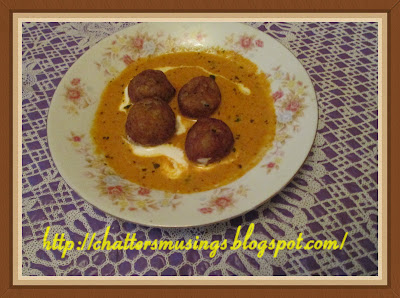This year on 26th October,2011, we celebrate our festival of lights-- Diwali. It is also called Dipawali meaning rows of lights or diyas (oil lamp). Diwali is one the most important, hugely waited and immensely cherished festival celebrated across India and it is also official holiday.
Hindus have several significant events associated with Diwali and among them the important is the return of Lord Rama after 14 years of Vanvas (banishment). To welcome his return, diyas (ghee lamps) were lit in rows of 20. Everyone celebrates by bursting firecrackers and rejoicing.Diwali is a festival not just for lights, lamps and firecrackers, but for some mouth-watering delights as well. Each region of India has its own traditional variety of sweets and cuisines made specifically for this festival.
Diwali celebrations are spread over five days, from Dhanteras to Bhaiduj.
Govatsa Dwadashi or Vasu Baras : Go means cow and vatsa means calf. Dwadashi or Baras means the 12th day. On this day the cow and calf are worshiped. The story associated with this day is that of King Prithu, son of the tyrant King Vena. Due to the ill rule of Vena, there was a terrible famine and earth stopped being fruitful. Prithu chased the earth, who is usually represented as cow, and ‘milked’ her, meaning that he brought prosperity to the land.
Dhanatrayodashi or Dhan teras or Dhanwantari Triodasi: Dhana means wealth and Trayodashi means 13th day. This day falls on the 13th day of the second half of the lunar month. It is considered an auspicious day for buying utensils and gold, hence the name ‘Dhana’.
Naraka Chaturdashi: Chaturdashi is the 14th day This was the day on which the demon Narakasura was killed by Krishna – an incarnation of Vishnu. It signifies the victory of good over evil and light over darkness (Gujarati: Kali Chaudas, Rajasthan : Roop Chaudas). In southern India, this is the actual day of festivities. Hindus wake up before dawn, have a fragrant oil bath and dress in new clothes. They light small lamps all around the house and draw elaborate kolams /rangolis outside their homes. They perform a special puja with offerings to Krishna or Vishnu, as he liberated the world from the demon Narakasura on this day. It is believed that taking a bath before sunrise, when the stars are still visible in the sky is equivalent to taking a bath in the holy Ganges. After the puja, children burst firecrackers heralding the defeat of the demon. As this is a day of rejoicing, many will have very elaborate breakfasts and lunches and meet family and friends.
Lakshmi Puja: Lakshmi Puja marks the most important day of Diwali celebrations in North India. Hindu homes worship Lakshmi, the goddess of wealth, and Ganesh, the God of auspicious beginnings, and then light lamps in the streets and homes to welcome prosperity and well-being.
Bali Pratipada and Govardhan Puja : In North India, this day is celebrated as Govardhan Puja, also called Annakoot, and is celebrated as the day Krishna – an incarnation of god Vishnu – defeated Indra and by the lifting of Govardhana hill to save his kinsmen and cattle from rain and floods. For Annakoot, large quantities of food are decorated symbolizing the Govardhan hill lifted by Krishna. In Maharashtra, Tamil Nadu and Karnataka, it is celebrated as Bali-Pratipada or Bali Padyami. The day commemorates the victory of Vishnu in his dwarf form Vamana over the demon-king Bali, who was pushed into the patala. In Maharashtra, it is called as Padava or Nava Diwas (new day). Men present gifts to their wives on this day. It is celebrated as the first day of the Vikram Samvat calender, in Gujarat.
Yama Dwitiya or Bhaiduj : on this day, brothers and sisters meet to express love and affection for each other (Gujarati: Bhai Bij, Bengali: Bhai Phota). It is based on a story when Yama, lord of Death, visited his sister Yami (the river Yamuna). Yami welcomed Yama with an Aarti and they had a feast together. Yama gave a gift to Yami while leaving as a token of his appreciation. So, the day is also called 'YAMA DWITIYA'. Brothers visit their sisters’ place on this day and usually have a meal there, and also give gifts to their sisters.
( source: wikipedia)














Hi Chatter, it was informative reading about all the days of Diwali festival so well explained by you. May the festival of Diwali bring joy and prosperity to your family too.
ReplyDeleteNice informative post.
ReplyDeleteHappy Diwali to you and others.
Wish you and your family a blessed and happy diwali from me and my family
ReplyDeleteHi CB,
ReplyDeleteGood Topic and thks for the information.
Hi CB
ReplyDeleteFabulous post dr. Ur post r always of grt infos.
Although knw abt all the 5 days celebration bt it brings grt pleasure in reading it again.
“BEST WISHESH FOR A DELIGHTFUL DIWALI AND AN INNOVATIVE NEW YEAR WITH A WEALTH OF HEALTH AND WORLD OF HAPPINESS.”
Thats such an informative post CB. I celebrate Diwali religiously but never knew about all these days that u've specified. Thank u so much for sharing it all. A very Happy Belated Deepawali to u and ur family too :)
ReplyDeleteThank You Di for sharing :)
ReplyDeleteWish all of you a happy and prosperous Diwali.May this Diwali bring lots of happiness to your life..
ReplyDelete